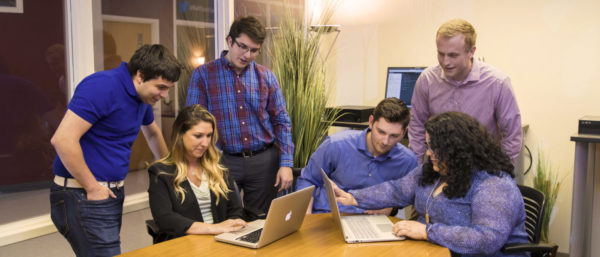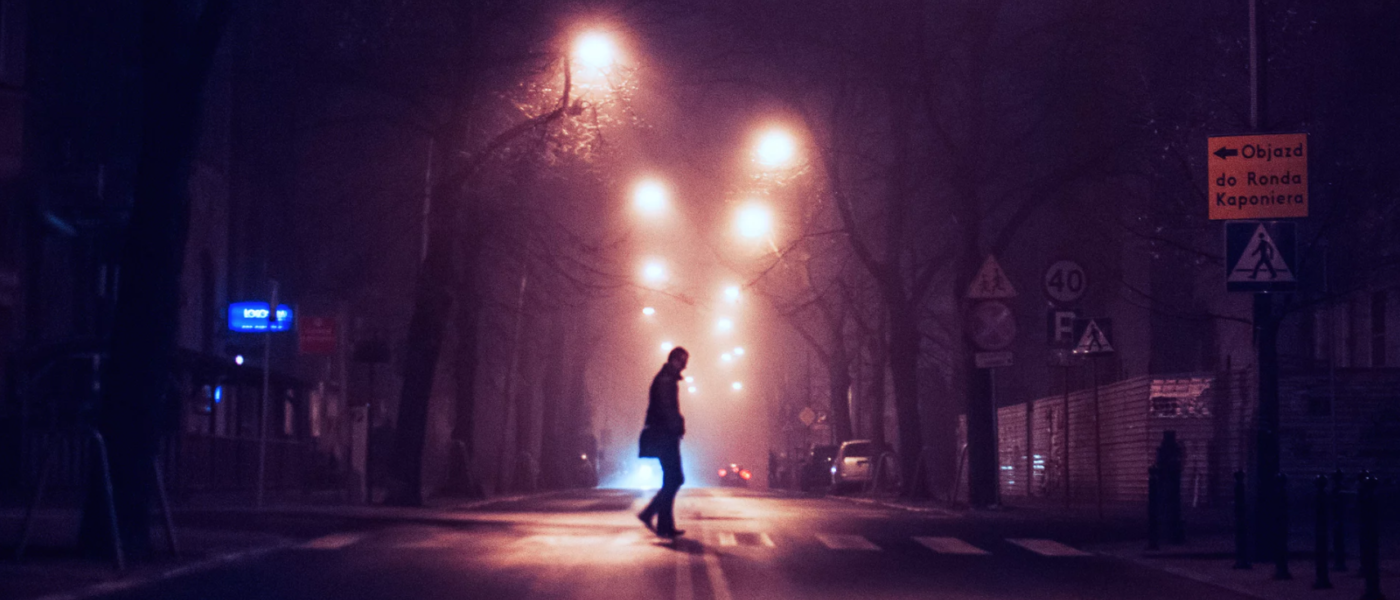Saying “You can do anything!” isn’t enough
On Friday, I took a bunch of my students to a presentation about a master’s program offered at Ball State: an M.S. in Information and Communication Sciences.
Why would I take English majors to something like this?
Well, let me explain.
The room

For eight years, I’ve walked past the conference room for this program. The wall facing the hallway is made of glass, and you can see conference table, computers, whiteboards, and assorted tech-looking stuff. For me, it’s like walking past a Radio Shack, a store where I never shop, a place that has nothing to do with me or with students pursuing degrees in English.
But then I met the new director of this program, Dennis Trinkle. He and I went to college together. We didn’t know each other in college, but hey, here we are 25 years later working at the same place, so why not get some lunch? We talked about how had we gotten from there to here, both of us products of a liberal arts education. I went to grad school in English and got an MFA, and he went to grad school in history and got a PhD.
And so I asked him, “What do you do in those glass-walled rooms with conference tables, computers, and tech-looking stuff?” and he patiently explained to me:
- That in the Venn Diagram where “Business” meets “Technology,” there are jobs. Many jobs. His program has a 90+% placement rate.
- Even better news: students don’t necessarily need to come in knowing much about business or technology.
- “We really need humanities majors,” he said. “They make great managers. They know how to translate, how to listen, analyze, and explain.”
The explorers
Around this same time, I’d started reading George Anders new book, You Can Do Anything: The Surprising Power of a “Useless” Liberal Arts Education. The gist of this book is: the tech revolution has NOT created lots of new jobs for coders, but rather jobs that are “tech-influenced but hardly tech-centered,” such as event planners, fund-raisers, graphic designers, human resources specialists, market research analysts, marketing specialists, and tech writers.
Anders calls this the new “rapport sector” and the “ingenuity economy.”
“What unifies all these jobs is…an explorer’s spirit.”
That’s the spirit you get in the liberal arts. You learn how to learn.
So, I asked my students, “How many of you can see yourself becoming a manager? Specifically, a manager in the sweet spot where business and technology overlap.” Only a few raised their hands. Privately, one student said, “I feel like I’ll be lucky to find a job at all, let alone be a manager.”
The secret sauce
So, on Friday, I took them to Dennis’s presentation about the M.S. in Information and Communication Sciences, which is comprised of:
Curriculum that can take you “an inch deep” in either business (management, leadership, consulting, design thinking, etc.) or in tech (networks, data, analytics, storage)–just enough to translate.
Apprenticeships in which you do projects for Indiana businesses–basically, it’s immersive/experiential learning at the graduate level.
Social Learning, a professional development program in which they are deliberate about giving students social capital.
This last aspect of the program, what Dennis called “the secret sauce,” is what caught my attention.
Just that morning, I’d asked a university data guy if it was possible to ascertain the socio-economic class of our English majors. My hunch is that many of them are first-generation and/or working class students, but I was told that I wasn’t allowed to access this info from their FAFSA applications. For good reasons, I think.
But I’ve long pondered how the heck I can give my students the social capital they sometimes lack. I was a working class student, too, after all. So many of my attempts to do this are met with howls of nooooooooooooo, as if I want them to be something they’re not.
Dennis listed the “social learning” his program provides: learning to play golf and ski, how to work a cocktail party or networking event, how to order wine, etc.
I watched my students’ eyes get big, and I thought, Oh my god, if I was 22 years old sitting in this room, I’d be freaking out.
“Things happen around dinner tables,” Dennis said, and he’s absolutely right about that. “If you don’t ever want to ski or golf again, that’s fine,” he said. “The point is to get you comfortable in social situations. We want you to be authentically yourself, because that’s how you build relationships.”
Literary citizenship is social learning
You might recall that I spent a few years really focused on the idea of Literary Citizenship, which was in fact my sneaky way of incorporating “social learning” into my creative writing classes.
I didn’t call it networking, because that’s a word that English majors don’t like. So I called it creating community IRL and online.
It was also my sneaky way of teaching students how the business of writing and publishing works.
It was my sneaky way of giving my students the “secret sauce” of social capital.
The invisible world
Towards the end of his presentation, Dennis said something that really resonated with me.
“In college, I knew about a few professional pathways I could take. Law. Medicine. Business. But most were just completely invisible to me.”
This, you see, is why I took my students to that presentation. Because it was about that invisible world full of conference tables and tech-looking stuff, a world they walk past every day without realizing they could be sitting in those rooms, too.
This is why college students major in subjects where the name of the major itself lights up certain pathways. Journalism. Architecture. Marketing. Criminal Justice and Criminology.
And why they avoid majors in which the name of the major itself does NOT light up certain pathways. English. History. Anthropology. Philosophy.
For years, my department has been telling our majors exactly what George Anders says: You can do anything! But if we’re going to save the liberal arts and combat declining enrollments in English, we have to do more than give them that pep talk.
We have to show them “anything.”
After the presentation, a few of my students said, “Oh my, that’s definitely not for me,” but a few said, “I could totally see myself doing that. I just never would have thought about it as a possibility.”
This is what I mean when I say that we need to give our students more stars to steer by.
And so I’ll end by asking:
- What good does it do to give students an explorer’s spirit if we don’t also give them stars to steer by?
- Whose job is it to give them these stars?
- What happens to higher education if we start handing out star maps?
- What happens if we don’t?
- And the question that drives me the most, actually: What else might I have been?

Um. Herm.
Why have I just now found this blog?
This is all wonderful.